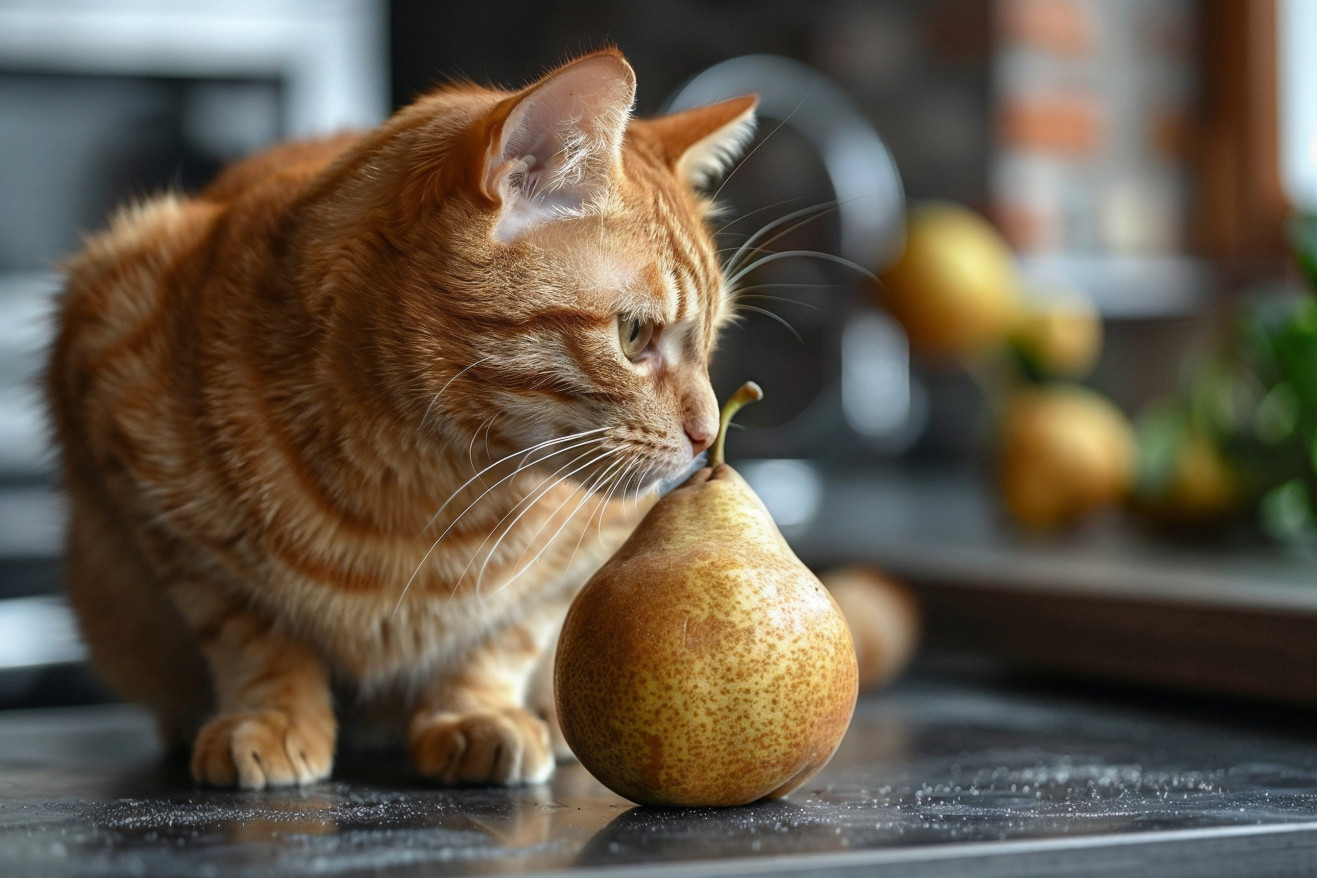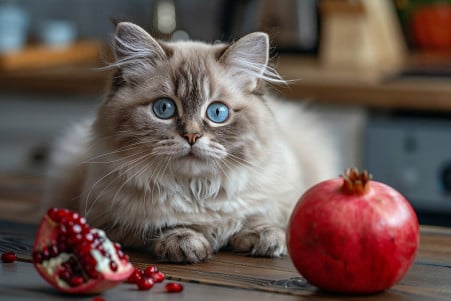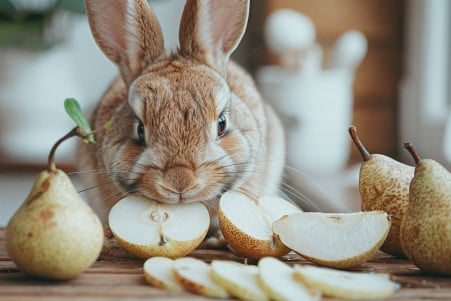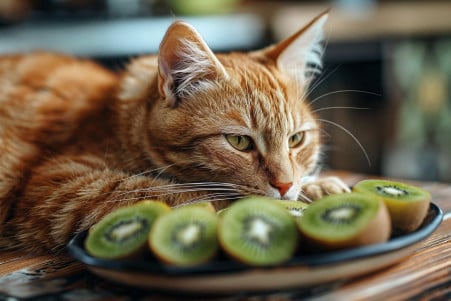Can Cats Have Pears? Pros and Cons Explained
22 March 2024 • Updated 21 March 2024

Despite their love of all things sweet, can cats have pears, or are these fruits dangerous for our furry friends? Cats can have pears in moderation, but because they are high in sugar and fiber, they should be considered a treat. Overconsumption can lead to digestive issues like diarrhea and vomiting. That said, it's probably better to stick with fruits that are better for cats, like bananas or blueberries.
In this article, we'll look at the research of veterinary nutritionists and other experts in feline health to determine the potential benefits and risks of giving cats pears. We'll explore the nutritional value of pears, how much you can give your cat, and the symptoms of pear poisoning. Armed with this information, you can decide whether or not to add pears to your cat's diet.
Can cats eat pears?
Nutritional Benefits of Pears for Cats
Cats are obligate carnivores, so they don’t need fruits or vegetables in their diet, but pears can still offer some nutritional advantages when fed as a treat. The flesh of pears contains important vitamins and minerals such as vitamin A, which is important for vision, skin, and immune health, vitamin C, an antioxidant that can help support the immune system, and copper, which is necessary for energy production and red blood cell creation.
Pears are also high in fiber, which can help promote healthy digestion and bowel regularity in cats. That said, because cats are obligate carnivores, they don’t need plant-based nutrients, and pears should be fed in moderation as a treat, not as a staple of their diet. Cats get most of the nutrients they need from animal-based foods, so while pears can offer some nutritional value, they aren’t necessary for a cat’s diet.
Toxic Compounds in Pears for Cats
The seeds, stems, and skin of pears contain cyanide compounds that can be toxic to cats if ingested in large amounts. Animal Gator notes that cyanide poisoning in cats can lead to symptoms like rapid breathing, difficulty breathing, increased heart rate, drooling, vomiting, and seizures.
The lethal dose of cyanide can vary between cats, so it's best to avoid giving cats the seeds, stems, and skin of pears. JustAnswer explains that if a cat has eaten a large number of pear seeds, you should take them to the vet immediately for an assessment and possible treatment. Symptoms of pear toxicity in cats will usually show up within 15-20 minutes of ingestion.
While the stems may not contain cyanide, JustAnswer says it’s best to avoid giving cats the stems and skins of pears to be safe. The best practice is to remove all the seeds, stems, and skin before giving pears to your cat as an occasional treat.
How Much Pear Can Cats Have?
Pears should be fed to cats in small amounts as a treat, not a regular part of their diet. Hepper notes that most experts recommend giving cats a few slices or a couple of tablespoons of pear at most, depending on the size of the cat. Larger cats can have a little more, while smaller cats and kittens should have less.
Cats should be introduced to pears gradually, and their reactions should be monitored because the high sugar and fiber content can be hard for some cats to digest. TrustedHousesitters.com also recommends that cat owners always remove the seeds, stems, and skin from pears before feeding them to cats to prevent the potential toxicity of the cyanide compounds in these parts of the fruit.
While pears can be a treat, ManyPets warns that the high sugar and fiber content can cause digestive issues like diarrhea if cats eat too much. As a result, cats should be fed pears in moderation, and their reactions should be monitored when they eat them for the first time.
Healthy Alternatives: Fruits and Vegetables for Cats
Although pears can be a healthy treat for cats, there are other fruits and vegetables that may be even better options. PetMD lists bananas, blueberries, watermelon, and cantaloupe as fruits that are often recommended as safe and healthy treats for cats. These fruits are packed with vitamins, minerals, and antioxidants that can help promote your cat's well-being.
In addition, cooked vegetables like carrots, sweet potatoes, and green beans can be given to cats in moderation as treats, according to Catster. That said, you should never feed your cat grapes, raisins, onions, garlic, and citrus fruits, as these can be poisonous, says Trupanion.
When you're trying out new fruits and vegetables, Trupanion recommends introducing them slowly and in small amounts so you can see if your cat has any negative reactions. This way, you can make sure your cat can handle the new food before you start giving it to them on a semi-regular basis as a treat.
Conclusion: So, Can Cats Eat Pears?
Pears can be a safe occasional treat for cats in small amounts, but they should not be a regular part of a cat's diet. The flesh of pears contains beneficial nutrients, but the high sugar and fiber content means they should be given in moderation. The seeds, stems, and skin of pears can be toxic to cats and should be removed before serving. If a cat ingests a significant amount of these toxic components, it's important to monitor for signs of illness and contact a veterinarian if necessary.
While pears can be a treat option, there are other safer and more nutritious fruits and vegetables that may be better alternatives for cats.


